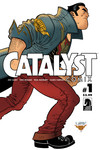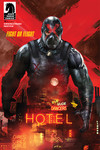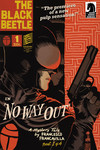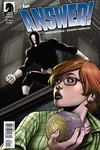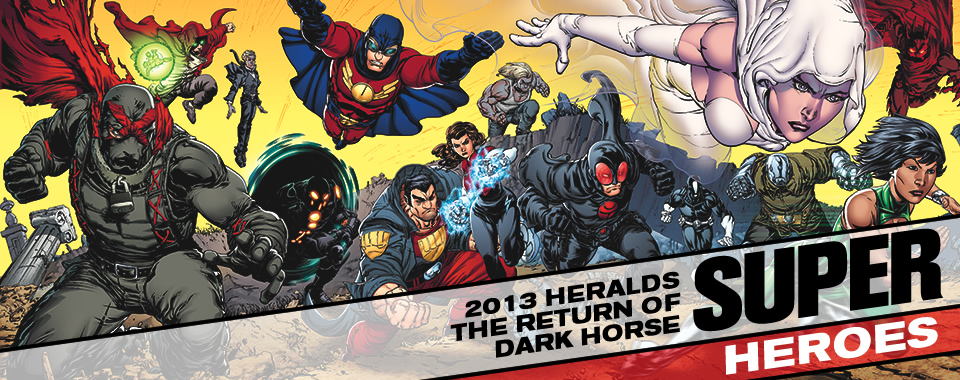
If you were to ask my seven-year-old self what I wanted to be when I grew up, the answer would be obvious.
Duh. A superhero.
Around that time I was gorging on the TV adventures of costumed heroes like Spider-Man (in all of his ’60s psychedelic glory), Ultraman (in all of his ’60s dubbed, giant-monster-fightin’ glory), and even Batman (in all of his ’60s bad-pun-making glory). Such heroes were perfect for a kid who . . . Okay, I know this is going to surprise you, but when I was a kid? I was kind of a nerd. Skinny, glasses, picked on by the jocks—the whole nine. To my seven-year-old self, TV superheroes were not only role models wrapped up in wish fulfillment, but also (I thought then) a viable career option. Who wouldn’t want to be a superhero?
But then, as all nerds do . . . I grew up.
Roughly fifteen years later, I fell hard for hard-boiled detective novels. They introduced me to a new kind of hero: damaged knights-errant who held fast to a code of honor in a hopelessly corrupt world. Dicks like Hammett’s Continental Op, Chandler’s Philip Marlowe, and Jonathan Latimer’s Karl Craven. Not only did these guys lack superpowers, but they also drank too much—and in the case of the Op, ran a little soft around the middle. To a disillusioned twenty-two-year-old receiving a cold dose of postcollegiate reality, these guys were my role models. Forget saving the world. It was enough just to survive it.
But then, as all disillusioned twenty-somethings do . . . I grew up.
By the time I was thirty, I had rekindled my love of comic books. Superhero stories, of course, along with heaping doses of crime and horror and everything else that warps a mind. But I was no wide-eyed grade schooler anymore. My love for superheroes was not unconditional. I gravitated towards capes who had that strain of hard-boiled detective about them. Determined to do the right thing, despite overwhelming opposition—or even better, a lack of (or fading) superpowers altogether.
Five years later I was writing crime novels, which led me to the dream gig of writing comic books, too. Whenever I wrote about superheroes, I was determined to bring them back down to earth as much as possible. For a while I wrote about an insanely superpowered mutant from the future, and I had great fun breaking that poor son of a bitch down in every single issue until he was basically ready to crawl into his own grave and pull the sod over himself like a blanket.
Which is why I’m so excited to be working on superhero comics for Dark Horse. As the very name of the company implies . . . these superheroes ain’t no boy scouts in spandex. They’re a high-octane blend of the damaged, quixotic heroes of pulp and detective fiction and the do-gooders in capes from the Golden and Silver Ages. Weird and thrilling characters like Mike Norton’s the Answer and Francesco Francavilla’s Black Beetle (which is so damn pulp you can practically see the wood chunks floating in his gorgeous art).
Earlier this year I was given the chance to write about X—that crazy-ass vigilante in a one-eyed mask—and it may be the most violent and savage story I’ve ever had the pleasure to work on. And for the past few months, I’ve had a blast throwing X into the mix with honest-to-goodness pulp hero Captain Midnight and the enigmatic Ghost (brilliantly resurrected, if you will, by Kelly Sue DeConnick) in their own miniseries called Two Past Midnight. It’s more fun than a forty-year-old nerd should be allowed to have.
The seven-year-old in me may be disappointed he didn’t grow up to be a superhero. But I’m pretty psyched to be doing the next best thing: telling their stories.
—Duane Swierczynski

